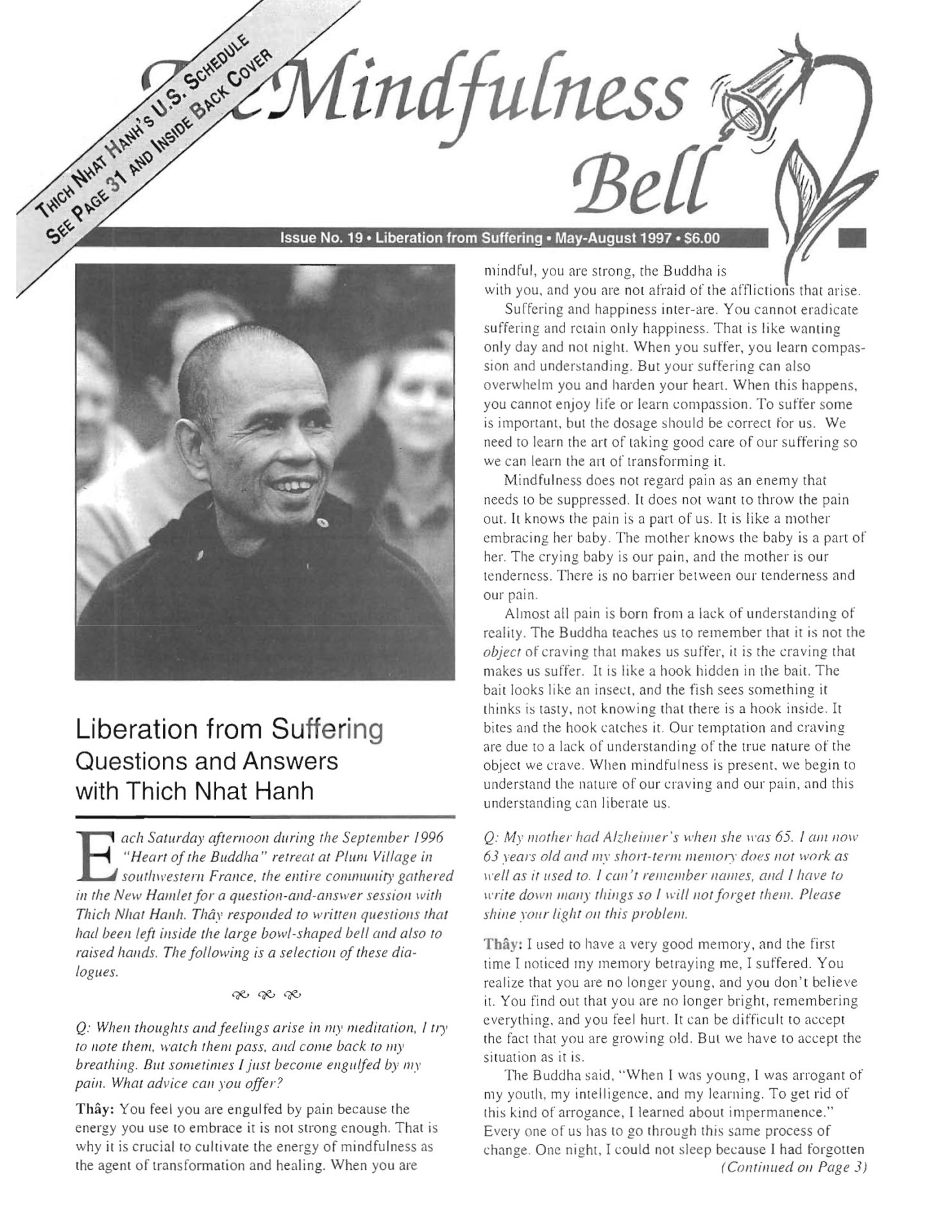By Brother Ivar
Like many of us, there are times when I wish I had a little more control over a situation. I always thought I had a lot of patience, but now I am finding out what a shallow base that patience had, because the condition for it was many years of living as a bachelor. The only being that I had to agree with was a fairly lovable dog. Now, living in the context of a diverse,
By Brother Ivar
Like many of us, there are times when I wish I had a little more control over a situation. I always thought I had a lot of patience, but now I am finding out what a shallow base that patience had, because the condition for it was many years of living as a bachelor. The only being that I had to agree with was a fairly lovable dog. Now, living in the context of a diverse, multicultural community at Plum Village, it sometimes seems my capacity to let go is stretched to the breaking point. And that is just the point, because what is breaking is my resistance to accepting things as they are, my ego's will to have control over things.
In October, Thay spoke about cows, not the ones wandering the streets of Calcutta, but the ones wandering the pathways of our mind which we sometimes call our "sacred cows." He suggested that we look into ourselves to find out what our sacred cow is—a responsibility, an expectation, a compelling idea, a motivating force, a condition we think our happiness is contingent upon but which may be an obstacle to our happiness and take our freedom away if we let it. Most of us probably have these cows at the feeding troughs of our mind, feeding on our freedom.
The fattest cow I have is my resistance to accepting things as they are. This acceptance is much different from the resignation for which some might mistake it. Now, when I accept conditions, I am letting go of my desire to control events that I have no need or ability to control. My perception had been that controlling certain events would make me happy. As Thay has said, in 60, 100, or 300 years, the conditions I think are so important will amount to a hill of beans. I'm also realizing how requiring these conditions for my happiness creates a prison of my own making and causes my mind to be at war with itself. As I let go of these false conditions for my happiness, I simultaneously try to take refuge in "what's not wrong" as Thay has suggested. I try to see "the beautiful and wholesome things in the environment, breathe the fresh air, and enjoy the miracle of walking on this earth." This has been a true source of liberation and joy for me.
This is not a docile acceptance of absolutely everything life puts on my plate. As the newly revised Ninth Mindfulness Training suggests, "We will do our best to speak out about situations of injustice, even when doing so may threaten our safety." But how does one know when to come forward and when to step aside, when to speak out and when to bow your head and let the universe unfold, however it may? Robert Aitken Roshi and Brother David Steindl-Rast coauthored a delightful book called The Ground We Share. In it, they touch on this question quite eloquently. Aitken Roshi suggested looking at the word "willful" as "full of will. In other words, full of my own will, full of myself." Brother David writes that he likes "to make a distinction between one's own will and self-will. The only power that can overcome self-will is one's own will. Our own will is to be built up and made strong. It is our willingness, not our willfulness, that we want to cultivate through practice." When we have enough clarity to listen and look at a situation with the ears and eyes of our heart, then we can approach the situation with compassion instead of adversity, and have a clearer understanding of an appropriate course of action.

My practice here at Plum Village has helped me experience the distinction that Brother David is talking about and begin to free myself from my will's agenda so I can be available for my "appointment with life." In the meantime, when I occasionally open the gate to let the cow out of that pasture in my mind, I can smile and know that everything will be okay as long as I give life permission to live me.
Brother Ivar, Phap Tri, lives in Plum Village. He was ordained as a monk in 1996.

